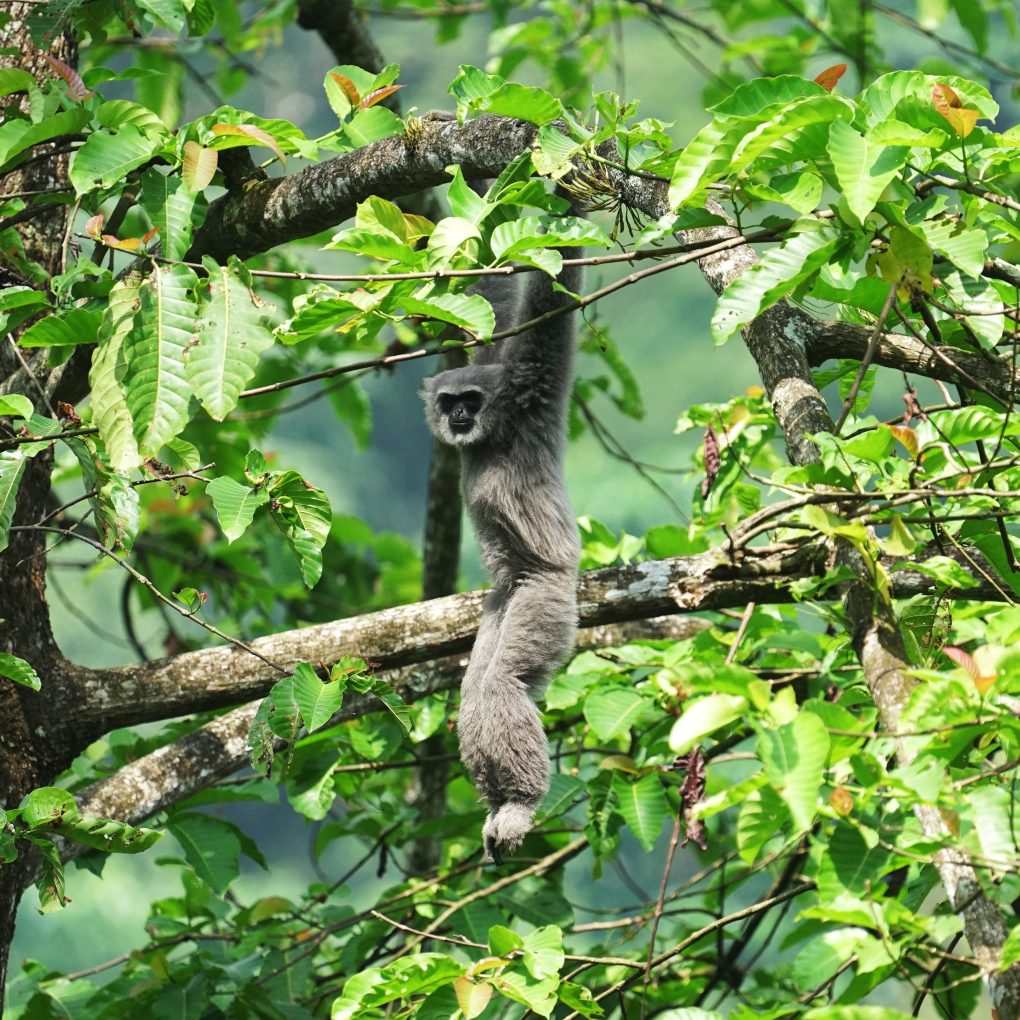Press release
“A Decade of Javan Gibbon in the landscape of the Dieng Mountains, Central Java, Indonesia”
Yogyakarta, August 10 2023. The Javan gibbon (Hylobates moloch) as the only ape on the island of Java, can be said to be a global identity, because our country Indonesia is also known for the existence of endemic species such as gibbons which cannot be found naturally in other countries. Its population size and natural habitat remain important for Indonesia.
The population and distribution of gibbons on the island of Java are only found in West Java and Central Java. In Central Java, there are currently two large populations, namely on Mount Slamet and forest complex areas that span across several regions (Kendal, Batang, Wonosobo, Banjarnegara and Pekalongan), which is hereinafter referred to as the Dieng mountain landscape.
In 2012 Setiawan, et al, (https://smujo.id/biodiv/article/view/208) conducted research on the population and distribution of gibbons in Central Java. The line transect observation method was used in this study, and the current estimation results are approximately 881 individuals in the Dieng mountain landscape and 175 individuals in Mt. Slamet . The results of this study later became the basis for a series of activities for the SWARAOWA in Central Java. After this research, SWARAOWA focused on conservation activities in one of the locations mentioned in the study which had the highest density and threat in the Sokokembang forest, Petungkriyono District, Pekalongan Regency. It is from the Sokokembang forest that gibbon conservation activities in the Dieng Landscape are currently being developed, through the Coffee and Primate Conservation Project.
In 2023, after a decade, how’s the gibbon population in Central Java, especially in this Dieng landscape?
Salmah Widyastuti, with colleagues then led research in 2021-2022 to update information regarding the population and distribution of the Javan gibbon in the Dieng landscape and has been published at https://bdj.pensoft.net/article/100805/. By using survey techniques based on gibbon vocalization(vocal counting triangulation) as well as habitat suitability analysis, the results of the study estimate the population after a decade there are 1092 individuals in the Dieng mountain landscape. This means that there is a population increase of 23% compared to 10 years ago. This population increase may indicate the success of conservation efforts from many parties in the Dieng landscape. However, more efforts and collaboration must be put in place to ensure the long term future of the gibbons in the central part of Java Island.
SWARAOWA
Arif Setiawan – Project Director for Coffee and Primate Conservation, email : [email protected]
